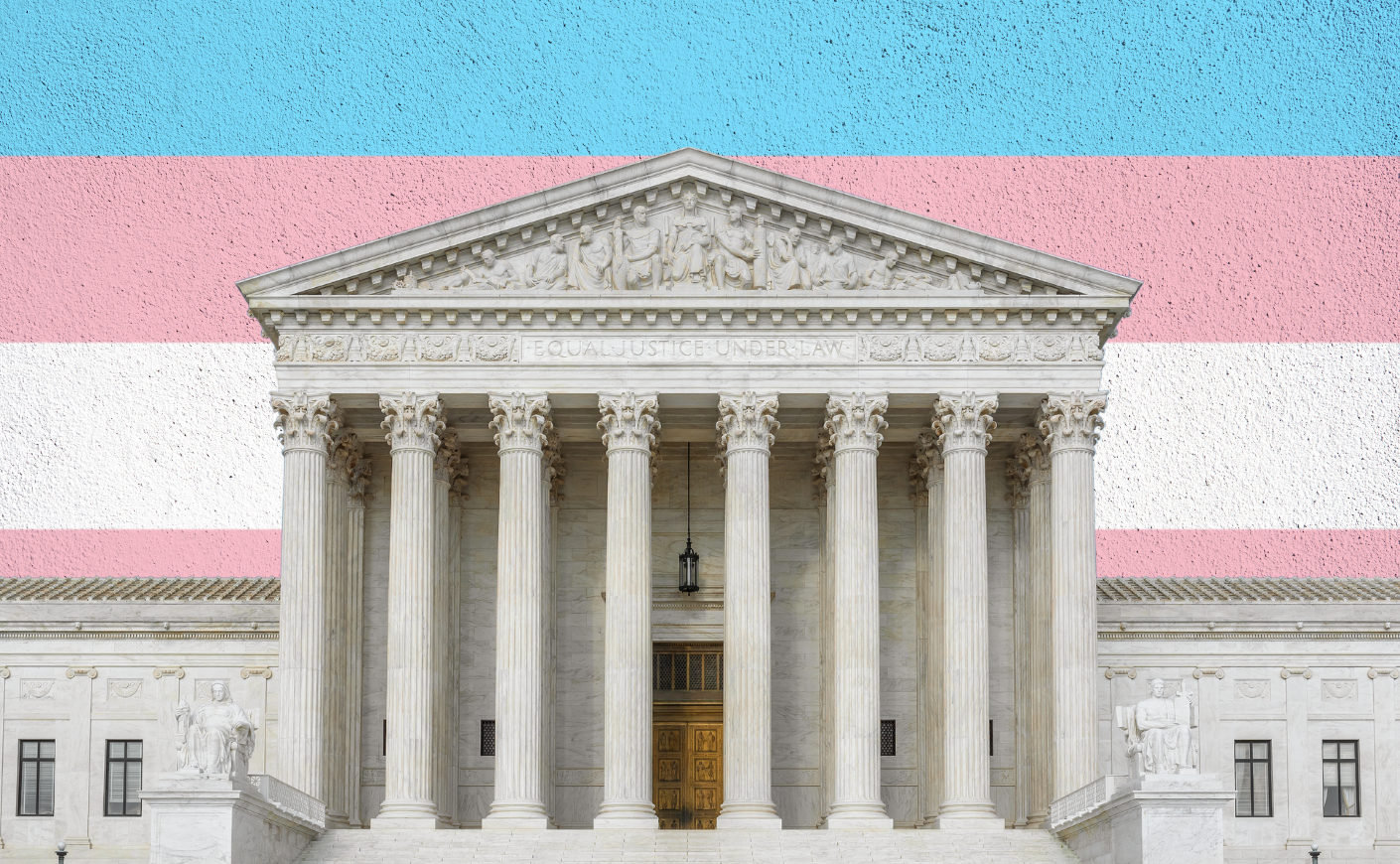A single ruling could have a cascading effect on the lives of transgender teens and their families.
On Wednesday, the Supreme Court is set to hear a challenge to a Tennessee law banning critical gender-affirming care for transgender youth, and the justices' decision could impact similar laws in dozens of other states. The American Civil Liberties Union has just 15 minutes to make the case, which is historic in and of itself: The group's leading attorney, Chase Strangio, is poised to become the first known transgender person to argue before the highest court in the land.
"It is not lost on me that I will be standing there at the lectern at the Supreme Court in part because I was able to have access to the medical care that is the very subject of the case that we're litigating," he told CNN.
Tennessee alone is home to more than 3,000 trans youth, and there are some 300,000 aged 13 to 17 across the U.S., according to UCLA School of Law's Williams Institute.
Here's a breakdown of what you need to know about the case and its implications.
US v. Skrmetti
The justices will weigh the fate of Tennessee's law Senate Bill 1 (SB1), which prohibits healthcare providers from providing gender-affirming health care, such as surgery for transgender or nonbinary children or their use of hormones or puberty blockers. The latter are the same medications used to (legally) treat other conditions, such as precocious or early puberty, according to Joshua Safer, MD, FACP, FACE, the executive director of the Mount Sinai Center for Transgender Medicine and Surgery in New York.
This legislation is hardly a first of its kind — similar bills have been enacted in more than 20 states, including Alabama, Arizona, and South Carolina. Tennessee officials say SB1 has a "compelling interest in encouraging minors to appreciate their sex, particularly as they undergo puberty." But the plaintiffs, including two families and Memphis-based physician Dr. Susan Lacy, argue that it discriminates against transgender youth based on sex, which violates the 14th Amendment's Equal Protection Clause.
"It's very difficult for these teenagers, who already face a difficult scenario, when there's this institutional governmental rejection of who they are," Dr. Lacy told CBS. "That's very difficult to be told you don't know who you are — being told that you're wrong, you don't know what you're talking about, your parents are trying to manipulate you — all of that kind of rhetoric is really difficult for these kids."
In response, Tennessee's attorney general, Jonathan Skrmetti, has maintained that his state's law "includes no sex classification" and instead "protects kids from irreversible, unproven medical procedures." He argues that minors aren't able to give adequate consent to such gender-affirming care at their age, and the state's law prevents them from making any rash medical decisions that might be difficult if not impossible to reverse later in life.
In recent years, Republican lawmakers have pointed to an unlikely place to support their claims on the issue: Europe. While studies have consistently shown that gender-affirming care significantly improves the mental health and overall well-being of transgender youth, some European governments have warned of insufficient evidence on the efficacy of these treatments. But many of these countries where the topic continues to be debated still provide access. For instance, the U.K. has opened clinics for transgender youth with strict eligibility criteria.
Potential impacts of the ruling
The Supreme Court could find that SB1 violates the Constitution and overturn the ban, which could prove to be a powerful tool in fighting anti-trans laws on bathroom access and school sports. But if the justices allow the law to stand, this decision could potentially pave the way for more policies aimed at restricting transgender Americans.
The incoming Trump administration could also impact the case. The next solicitor general could support Tennessee's law — as part of his campaign promise, the president-elect vowed to crack down on gender transition for minors once taking office.
This wouldn't mean the end of the case, though. According to The Washington Post, the court could allow the ACLU to continue challenging the law independently while keeping the justices on track to issue a ruling by the end of June.
Regardless of the outcome, this case involves one of the most contentious issues in the country. According to a Gallup poll in June, a slim majority (51 percent) of Americans believe changing their gender is "morally wrong," while an even larger majority (62 percent) oppose bans on gender-affirming care for minors.
Some LGBTQ advocates worry that trans youth — 90 percent of which live in states that have proposed or passed anti-transgender laws — are now caught in the legal melee.
"For the second straight year, hundreds of bills impacting transgender youth were introduced in state legislatures," said Elana Redfield, federal policy director at the Williams Institute. "The diverging legal landscape has created a deep divide in the rights and protections for transgender youth and their families across the country."
Sarah Kate Ellis, president and CEO of GLAAD, said in a statement that the implications of this case could also affect a broader group of Americans than only those who identify as transgender.
"Sweeping categorical exclusions on mainstream consensus health care for any group of Americans are discriminatory, as many federal courts have already affirmed, including in red states. It is imperative that those watching understand the stakes here — access to health care should be available to all who need it, without the interference of the government," Ellis wrote.









